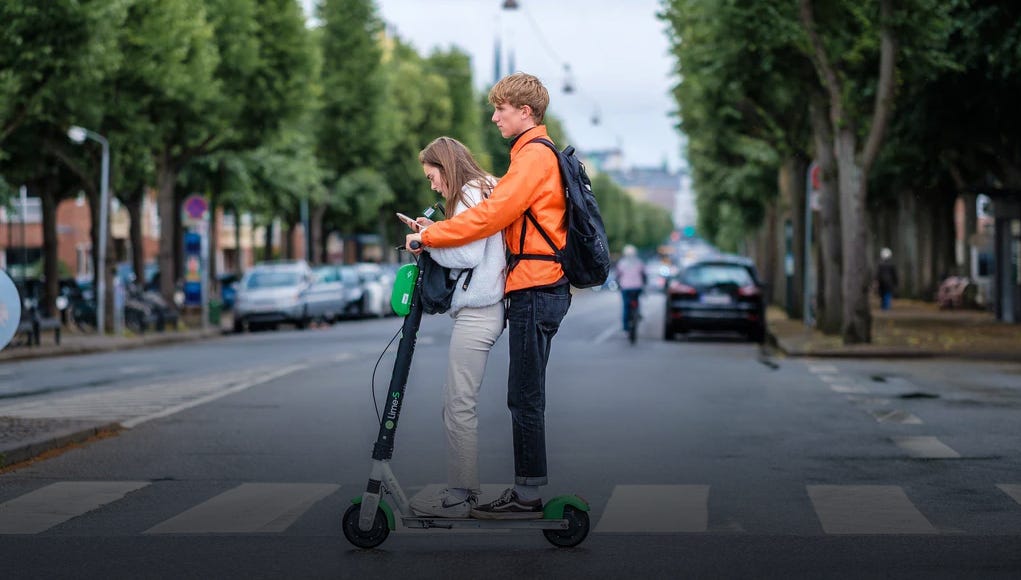E-Scooters: A Two Wheeled Burden?
Since approximately 2016 there has been a rapid increase in personal and for-hire electric scooters (e-scooters) in cities around the world. Over 600 cities now have e-scooter for-hire services and, globally, the electric scooter market is valued at more than AUD $49 billion and growing at 10% per year. In Australia, there was an 800% increase in e-scooters from 2016 to 2021.
However, there are serious concerns regarding e-scooter related injuries.
The Victorian Emergency Minimum Dataset has released figures regarding e-scooter riders seeking emergency care in hospitals: 502 in the 2022 financial year, then 958 in the 2023 financial year; nearly a twofold increase year on year. Victoria introduced its e-scooter trial with 2500 rental scooters in Melbourne, Port Phillip, and Yarra council areas in February 2022, and legalised private e-scooters on public roads in March 2022.
Despite the minimum riding age being 16 there have been 193 presentations by children below this age over the past 3 years. Royal Australasian College of Surgeons Victorian chair Dr Patrick Lo has stated that 3 children presented in one week with a brain haemorrhage, brain swelling and a broken neck. 42 unfortunate pedestrians have also been treated for e-scooter-related accidents.
Mortality due to e-scooter traffic accidents was 9.2%.
Queensland has released similar figures. In that state, e-scooter injuries admitted to hospitals were as follows: 279 in 2019, 877 in 2022, and 801 by September of 2023.
In Western Australia there was a 386% percent increase in hospital admissions in the year July 2021 to June 2022. There was a 200% increase in injuries between 2017 and 2022.
A study by the University of California San Francisco found that in the US, e-scooter-related injuries and hospital admissions increased by 222% from 2014 to 2018, climbing above 39,000. Hospital admissions expanded by 365%.
Severe Injuries, Lack of Helmets
The study “Comparison of Injuries Associated With Electric Scooters, Motorbikes, and Bicycles in France, 2019-2022”, published in the Journal of the American Medical Association (JAMA), looked at 5,233 e-scooter injury patients. Mortality due to e-scooter traffic accidents was 9.2%. The risk of severe traumatic brain injury, 26%.
In a study done by University of California San Francisco, electric scooter injuries included fractures 27%, contusions/abrasions 23% and lacerations 14%. Most concerning, almost one third reported head trauma.
The study “Characteristics of Electric Scooter and Bicycle Injuries After Introduction of Electric Scooter Rentals in Oslo, Norway”, published in the JAMA, found that e-scooter injuries often occur at night, to young adults, who aren’t wearing helmets, and have a high blood alcohol reading. Dr Sarah Whitelaw, an emergency doctor in Victoria, echoes this sentiment. She said in addition, riders were often travelling at high speeds.
In Australia, there was an 800% increase in e-scooters from 2016 to 2021.
Economic Burden
In the US, UCLA research reveals that the healthcare cost of e-scooter injuries increased from $6.6 million in 2016 to $35.5 million in 2020.
Doctors in New Zealand reviewed data of surgeries on injured scooter riders from October 2018 to February 2019. Adding up costs including anaesthetic, theatres, staff, implants, time in hospital and lost income, each injury averaged $19,282 NZD. Over $400,000 was spent in less than five months.
The study “The impact of electric scooters in Melbourne: data from a major trauma service” published on Wiley, looked at e-scooter injuries admitted to Royal Melbourne Hospital from January 2022 to January 2023. 247 riders and 9 pedestrians presented for treatment. 33% of riders were wearing helmets at the time of incident. 50% reported head injuries. Hospital cost totalled $1.9 million, and median cost was $1321.66 per patient.
According to the hospital’s website, “The Royal Melbourne Hospital is part of Australia’s public health care system and offers hospital care to any Australian resident under Medicare arrangements.” This also applies to the 696 other public hospitals across Australia many of which would be treating e-scooter injuries, paid for by the taxpayer.
Solution
The question for libertarians is not whether to restrict or ban e-scooters, which is what authoritarians prefer, but how to move the financial risk and economic burden of injuries from taxpayers to e-scooter riders.
One potential solution is to establish an insurance requirement for both rental and private e-scooter owners. Purchased by riders, this would function like first-party and third-party car insurance. In the event of an accident, the insurance would cover resultant medical costs.
Consistent with the concept of personal responsibility, this approach would shift financial liability to individual riders and decrease reliance on public healthcare funds. It might even become a model for managing other health risks.
The post E-Scooters: A Two Wheeled Burden? appeared first on Liberty Itch.



